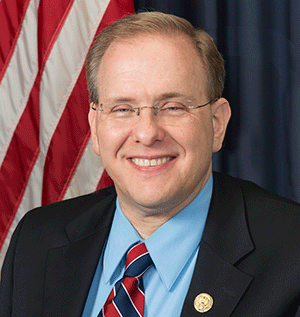Stakeholders rev engine for comment period

By Liz Beaulieu, Editor
Updated 1:01 PM CDT, Fri August 5, 2022
 WASHINGTON – An Aug. 3 roundtable discussion hosted by the National Council on Disability set the stage for responding in large numbers to an upcoming 30-day public comment period on Medicare coverage for power seat elevation and power standing systems.
WASHINGTON – An Aug. 3 roundtable discussion hosted by the National Council on Disability set the stage for responding in large numbers to an upcoming 30-day public comment period on Medicare coverage for power seat elevation and power standing systems.
CMS has committed to opening the comment period in August, almost two years after the ITEM Coalition submitted its formal request to reconsider the national coverage determination for mobility assistive equipment to include coverage for these systems.
“We must be ready to go, once the window opens,” said Rep. Jim Langevin, D-R.I., who co-chairs the Bipartisan Disability Caucus in the House of Representatives and uses a wheelchair. “Now is our time to be prepared and encourage everyone to get ready. Let’s make sure CMS has all the evidence it needs to advance affirmative coverage policy.”
The forum, which drew more than 400 participants, included live remarks by Langevin, as well as recorded remarks from Sens. Tammy Duckworth, D-Ill., who also uses a wheelchair, and Marsha Blackburn, R-Tenn. It also included perspectives from people with mobility disabilities, clinicians, researchers and legal and policy experts.
In their remarks, Duckworth and Blackburn pointed out that the lack of coverage for these systems means Medicare beneficiaries must pay for them out-of-pocket, resulting in inequity.
“We all know this is not a luxury,” Duckworth said.
“It is inconsistent with the goal of helping every person lead a full and independent life,” Blackburn said.
People with mobility disabilities who spoke during the roundtable say these systems help them perform everyday acts like transferring out of their beds and cooking meals. They also prevent conditions like diabetes and issues like irregular bowel movements, reducing Medicare costs in the long-term.
“The cost of this wheelchair (with this technology) is offset by all the things that I don’t suffer from,” said Jim Meade, an advocate for the United Spinal Association who has muscular dystrophy.
The clinicians and researchers who participated in the roundtable backed up their stories with evidence. The formal request to reconsider the NCD submitted to CMS included 129 research articles, 314 footnotes and 61 pages of text, pointed out Cara Masselink, executive director of the Clinician Task Force and an assistant professor in the occupational therapy department at Western Michigan University.
“Thirty-two of those (pages of text), or half, were directly focused on describing the evidence base supporting the medical nature of the power seat elevation and power standing systems on power wheelchairs,” she said.
Even when CMS opens the public comment period, there are several next steps: After the agency closes the comment period, it must make a preliminary decision and then open another comment period.
“It’s frustrating how long CMS has taken,” said Peter Thomas, co-coordinator for the ITEM Coalition and managing partner at Powers Law Firm. “It’s not a quick process.”
What can you do?
When CMS opens the 30-day public period:
- Visit www.rise4access.org.
- Submit comments.
- Register for updates.
- Sign petition.
Comments